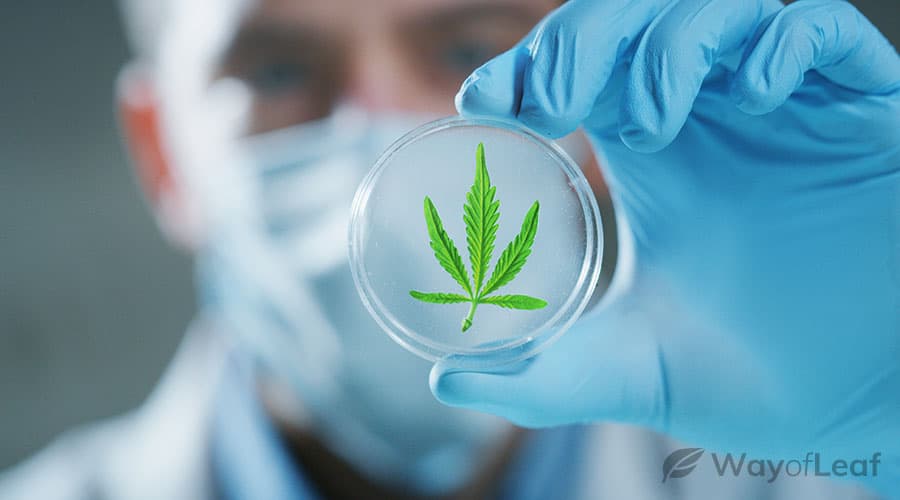Recently, various forms of THC have hit the market, enjoying a rising surge in popularity. The cannabinoid craze began with CBD, a non-psychoactive compound that some believe to have therapeutic properties. But due to a growing acceptance of cannabis and its psychoactive properties, other cannabinoids are now seeing more popularity.
However, despite the growing acceptance of THC, it remains federally illegal. Although some states have since permitted it for various purposes, laws remain complicated.
Now that delta 10 distillate is hitting the shelves, many consumers want to learn more about this compound. As an analog of the traditional delta 9 THC, there are a few potential delta 10 benefits. This guide explains everything you need to know about D10, how to use it, and what it does.
What Is Delta 10?
In simple terms, delta 10 is a cannabinoid. It’s a type of tetrahydrocannabinol (THC) found in trace amounts in the cannabis plant.
Like other tetrahydrocannabinols, it can cause a psychoactive high when consumed by humans. That said, it is less potent than delta 9 THC, the type most commonly found in marijuana.
D10 occurs in tiny trace amounts that cannot really be extracted from cannabis plant matter. Instead, manufacturers make it synthetically from other, more abundant cannabinoids.

Scientists have been aware of delta 10 THC for some time, with a 1984 paper by Raphael Mechoulam describing its synthesis. However, the methods used by doctor Mechoulam required harsh chemicals and were not suited to consumable products.
Speaking to Extraction Magazine, Ph.D. chemist and lab expert Josh Jones has said that many labs mistake delta 10 for CBC or CBL during High-Performance Liquid Chromatography tests. This shows how rare and elusive delta 10 is.
Nevertheless, contemporary brands are looking to sell this cannabinoid in larger quantities than ever seen before. So, why would anyone want to try it out? As it turns out, there may be some delta 10 benefits for those who dare to try it.
Delta 10 vs. Delta 8
By now, many cannabis enthusiasts have heard of delta 8 THC. It is often used as a diluted version of weed, capable of causing a less intense high than the “real” thing. Many accounts suggest that delta 8 is about half as potent as delta 9.
Delta 10 concentrate falls closer to D8 on the scale. In other words, the intoxication it causes is more subdued than recreational cannabis. However, there are still differences between the two compounds.
Delta 8 triggers a high more similar to an indica strain. D10, meanwhile, is more like a mild sativa.
When it comes down to choosing delta 8 vs. delta 10, it’s easy to think of the effects in terms of indica vs. sativa strains. At least, in the stereotypical sense. Delta 8 triggers a high more similar to an indica strain, with a physical, couch-locking effect. D10, meanwhile, is more like a mild sativa, with a cerebral, uplifting high.
Some users suggest that D10 is more appropriate for daytime use, while delta 8 is best reserved for the evening.
Is Delta 10 Stronger Than Delta 8?
An old 1988 study by Raphael Mechoulam tested the effects of D10 on pigeons, finding that the birds experienced minor intoxication using it compared to D9. This appears to show that, like delta 8, delta 10 is weaker than delta 9.
But which is the stronger of the two?
There are no definitive studies on this, so it’s impossible to say. However, users typically take the same amount of each cannabinoid – between 25mg and 50mg. That said, some individuals feel the effects after taking just 10mg of either cannabinoid, so it’s essential to be cautious when using either type of THC for the first time.
Is Delta 10 Legal?
The issue of delta 10’s legality is a tricky one. Some believe delta 10 to be federally legal because it is typically derived from hemp. As per the US Farm Bill, hemp and its derivatives are permitted provided that they contain less than 0.3% THC. In this case, the wording is taken to refer only to delta 9.
The result is that numerous brands have taken to selling delta 10 THC products under the presumption that it is legal. As awareness has increased, several states have taken motion to ban D10, often due to a lack of studies and regulation. There are, therefore, concerns about its safety.
What’s more, it seems that the ban on THC may extend to its analogs, including delta 10. The legal landscape is messy, and largely, it remains uncertain whether delta 10 is legal or not. Some brands will not ship to states if the law is unclear.
Here is a current list of states where D10 is outlawed:
- Alaska
- Arizona
- Arkansas
- Colorado
- Delaware
- Idaho
- Iowa
- Mississippi
- Montana
- Rhode Island
- Utah
Delta 10 THC Effects
As already discussed, delta 10 concentrate is not as potent as delta 9 THC. That said, its effects are still noticeable, especially when taken in higher doses.

Delta 10 THC has energizing effects comparable to a sativa cannabis strain. Users report feeling uplifted, with a positive mood and a subtle hint of more energy.
Notably, delta 10’s effects are not precisely studied, and much of the research on it was performed decades ago, making it outdated. As a result, the described effects stem from anecdotal evidence from current users.
Delta 10 THC Products
Already, there is a massive variety of delta 10 products on the market. The range is pretty similar to other cannabinoid concentrates, including the likes of delta 10 gummies and delta 10 cartridges.
Other delta 10 edibles are available, too, with some brands selling cakes, chocolate, and other delicious treats. As is the case with all THC-containing edibles, it is advised to stick to a lower dose and wait several hours before consuming more.
If you have no idea where to start, a delta 10 tincture might be the best option, as it allows the user to adjust the dosage with ease. Plus, tinctures can be used in multiple ways. Alternatively, a delta 10 cart might suit vapers and smokers well.
It’s worth noting that delta 10 is hard to come by. The lack of it in natural cannabis means that brands must use extensive amounts of plant matter and some complicated extraction and processing techniques to make delta 10.
As a result, some experts recommend being wary of products that claim to be 99%+ delta 10. These products likely contain other cannabinoids such as delta 8 – or even delta 9 – THC. These items can toe the line between legal and illegal, so it’s vital to be safe.
Where to Buy Delta 10
As with all other cannabinoids, it’s imperative to buy only from the most trustworthy brands. There are a variety of delta 10-THC products for sale from various brands, but consumers should stick to reputable companies.
Established CBD brands are branching into the world of delta 10-THC, and these can be an excellent option for users seeking to try it. The most trustworthy companies will have plenty of information on their website, Certificates of Analysis (COAs) available to view, and a helpful customer service team to answer your questions.
More rarely, some brands are launching that specialize in delta 10 alone. These brands may be looking to make a quick buck, so their products may be subpar. Perform all the usual research into the brand, and you should be able to sort the wheat from the chaff.
If a brand uses vague language, makes medical claims, and doesn’t have lab reports, then stay away.
Some of the brands pioneering the way in the D10 field are:
Final Thoughts on Delta 10 THC
The world of delta 10 THC is not entirely clear. This analog of THC occupies a legal gray area, and it is vastly understudied. Nonetheless, it is gaining popularity among cannabis enthusiasts who want to experience a mild and uplifting high.
After seeing the waves that delta 8 has made in recent times, it’s likely that delta 10 will continue its upward trend for some time to come. That said, the market is volatile, and laws are changing all the time.
For now, consumers in some states can get their hands on delta 10 THC products, but the onus is on them to ensure the items are safe. Only purchase from reputable brands and, when using D10 for the first time, follow the golden rule and go low and slow.
![Top 10 Cannabinoids: What Are They and What Do They Do? [GUIDE]](https://wayofleaf.com/wp-content/uploads/2018/09/wol_top-cannabinoids-and-what-they-do-640x225.jpg)


![Does Cannabis Affect Women Differently to Men? [ANSWERED]](https://wayofleaf.com/wp-content/uploads/2018/09/mj_does-marijuana-affect-women-differently-to-men-answered-640x225.jpg)
![What Is THCA? [Exploring the “Other” THC…]](https://wayofleaf.com/wp-content/uploads/2018/05/mj_thca-640x225.jpg)



![Why CBD Oil Won’t Work for Everyone [Answered]](https://wayofleaf.com/wp-content/uploads/2018/03/wol_1920x450-67-640x225.jpg)
![Can Weed Make You Smarter? [Finally Answered]](https://wayofleaf.com/wp-content/uploads/2018/03/wol_can-cannabis-make-you-smarter-640x225.jpg)

![What Is Ocimene? [This Cannabis Terpene Explained]](https://wayofleaf.com/wp-content/uploads/2020/10/wol_what-is-ocimene-640x225.jpg)
